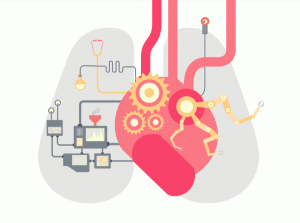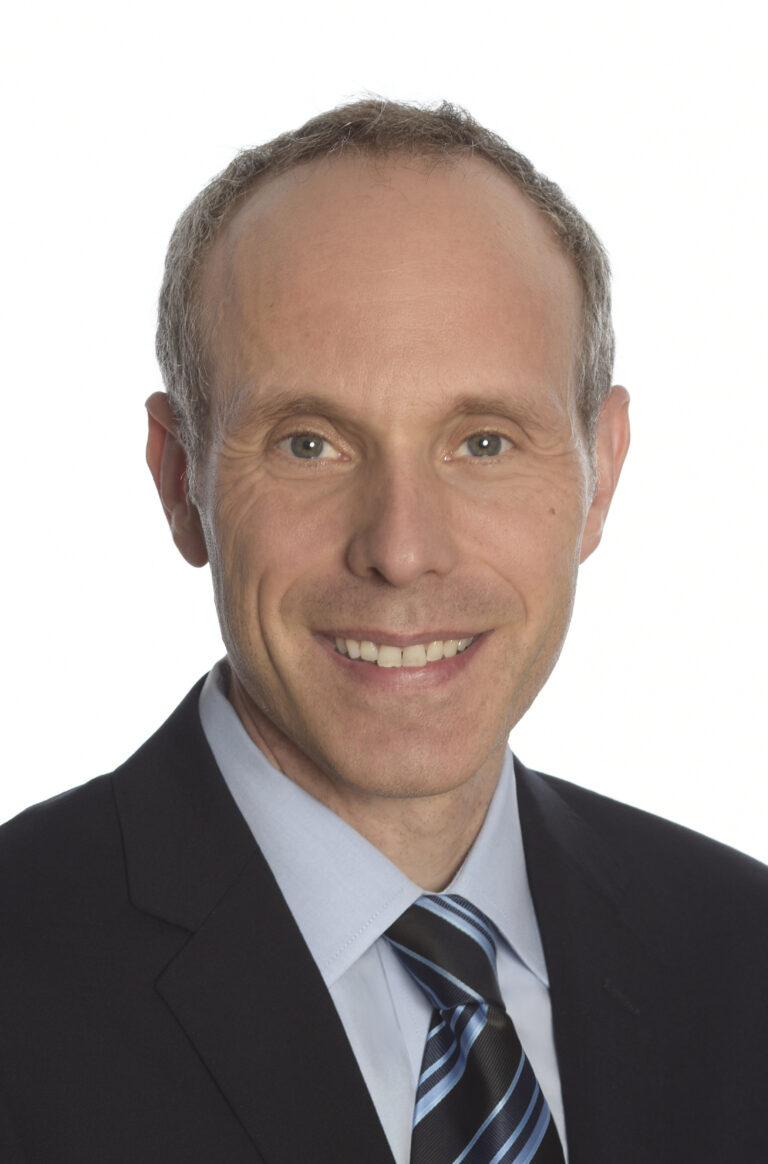Our chat with Michael Krauthammer
Michael, you do research in the field of clinical data science and translational bioinformatics. Can you tell us about it?
Yes, I like to use the broad term clinical data science for what I do as I feel it reflects our work well. We use AI and modern machine learning on big datasets from electronic medical records on a local, national and international level.
Our work around bioinformatics doesn’t just involve using clinical data but also genomics data or whole genome sequencing data. It’s maybe a little bit less focused on AI but uses smart computation. I call it ‘translational bioinformatics’ because we’re not working with data from say, worms or flies, but actually from human samples. For example we would sequence the genomes of real patients and derive our findings from that.
So, when you analyze these big clinical data sets, what do you want to learn? Is it about understanding the potential, the type of decisions you can take based on such data?
Well, that’s a good question with many parts to it. First of all, we do this work for knowledge discovery. Medicine is a research area in which you try to summarize common observations among patients, which leads to understanding of disease. This work has historically been done by experts trying to figure things out, but by being able to pull millions of patient records we can start using computers to see patterns that are not obvious.
Analyzing data in this way, there is a huge opportunity for knowledge discovery which can help us to reconsider what is known and to reclassify disease. This is driven by vast masses of data but also the possibilities of bioinformatics to look deeper and deeper into the geno- and phenotype of patients. All of a sudden, we can understand disease in much finer, more detailed ways and even uncover new disease entities. So knowledge discovery is a big deal.
The challenge at the end is to make the paradigm shift towards personalized medicine. So we’re interested in better diagnosis and prediction. You can use AI to accurately detect disease or predict which treatments are the very best for the individual patient. The availability of large data sets allows AI to get better and better at this job, which allows us to start building tools for physicians or healthcare workers to do their work more efficiently.

And I suppose that here we’re coming closer to the topic of innovation?
Yes, it’s very close! Right now, AI is making huge inroads in highly standardized domains that predominantly use images such as radiology, pathology or dermatology. In these fields, AI has reached super-human performance. This means that if you compare the physicians to the computer there is not much difference any more for certain narrow tasks.
Excitingly, there are many other domains in medicine where there is a lot of data and we can have similar AI-based innovation happening.
I can imagine. It’s overwhelming to think about all the areas of healthcare that can be optimized with digitalization.
Yes, it goes from improving workflows inside hospitals, like patient planning and staffing, to helping patients to navigate available medical information better. You know, patients search the internet first and then maybe go to the doctor. AI can be used to help the patient better navigate the space in the first place.
But I am most excited about new technologies that will assist physicians in their daily tasks. I am thinking of augmented reality applications for surgeons, but also computers taking over routine tasks such as patient documentation that is taking up too much time in a physician’s workday.
I’m sure that the access to enough data must be a real hurdle for innovation here?
Yes, we would need international sharing efforts to get enough data. To enable this, we are actually working on innovation around new forms of data sharing that is supported by a recent Innosuisse project.
Interesting.. What is this about?
Innosuisse in general is very helpful in our data science endeavors. For example, one Innosuisse project is about building a prediction tool that helps physicians to react more quickly in an ICU setting.
Back to the question: In a situation where there is not enough data available at one hospital, how can we enable the sharing of electronic medical records, which contain sensitive patient information, on a national and international level? The key innovation of our second Innosuisse project is that we can build powerful AI tools using information across hospitals without requiring any single hospital to actual give access to the data in the first place. The technology is called federated learning and is one of the most promising technologies for overcoming data privacy concerns. Once we have found solutions for this issue we can use AI in medicine for more complex questions.
So, for the data sharing project, are you collaborating with other hospitals?
That’s right, but crucial to this is also a company that enables the sharing. This is a typical scenario for these projects; we are providing the academic firepower to enable AI and the companies are adding the backbone to build sturdy products. There is certainly a lot of need for this type of development out there.
Yes, I can imagine there is so much potential to involve AI more in healthcare. You’re saying that the collaboration is crucial, both on the international level to get enough data together for innovation to happen and then with the companies?
That’s exactly right. It’s three things need to happen: international collaboration, companies to drive innovation and academia to add the data science expertise. Companies are important since they have the necessary infrastructure to actually build the permanent backbones to these developments.
So what’s next? Where do you see potential?
Well, something that we haven’t talked about so far, and where there is huge potential, is to monitor health data using wearables. With new wearable devices emerging it is possible to collect valuable patient data not only at the hospital but also at home.
This will generate a much more comprehensive picture of the patient as it also tells us about the quality of care outside of the hospital. I must say, this is a huge interest of mine and we already have some ideas for how to go in this direction with my research group.
Ok, I’ll be looking forward to following up with you on this work. Finally, could you tell us something about what digital innovations are especially affecting you today?
Good question. One thing that hugely impacts my work is how we can easily access open-source software and other types of digital information. It’s an incredible thing as you can quickly build technology on top of something that exists and is shared openly. The openness of technology and data inspires me and I think it can fuel exponential growth – all sides coming together to make something bigger.
How we can use AI in healthcare is fascinating to many people. Would you be able to recommend a podcast, magazine or book to someone who wants to find out more?
Yes, when it comes to AI in general, listen to Lex Friedman! I listen to him religiously because it’s the best AI podcast out there. He’s a researcher at MIT and he speaks to all kinds of people in the world about AI. It’s incredibly good.




